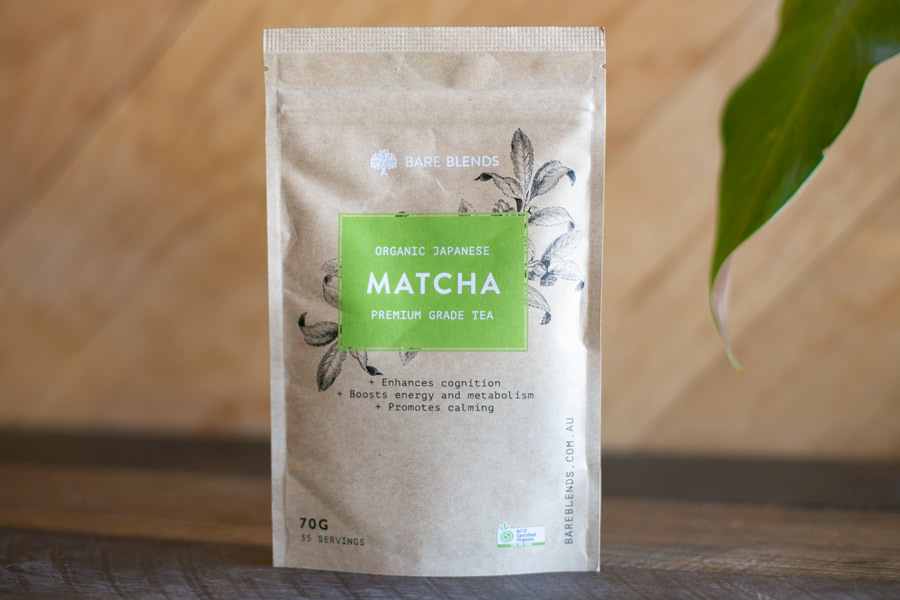Sleep More To Stress Less
Sleep and stress are two factors that have a large impact on our overall wellbeing. They’re also inextricably linked to each other, so you may need to consider both next time you’re feeling tired or stressed.

Bare Blends
2019-02-15

Sleep and stress are two factors that have a large impact on our overall wellbeing. They’re also inextricably linked to each other, so you may need to consider both next time you’re feeling tired or stressed.
Life can be stressful, and it’s often exacerbated by our busy schedules, late nights and other factors like work, relationships, and finance. Most of us are familiar with the symptoms of stress and the days of low energy, where we become easily agitated, emotional, are constantly worrying, and have an inability to focus. But one of the biggest and most hindering symptoms of stress is the negative impact it has on our sleep. In fact, stress can cause insomnia by making it difficult to fall asleep, and to stay asleep.
As well as this, a lack of sleep can induce stress, and decreases our overall mental and physical performance. According to one study, sleep-driven cognitive impairments include being emotionally reactive, impulsive, and impairing our logical reasoning. This can increase stress by negatively affecting things such as our jobs and relationships.
Conversley, getting more sleep can help to reduce the symptoms of stress. It does this by restoring and calming the body, as well as regulating mood and improving concentration and lowering cortisol levels. So the more sleep you get when you’re feeling stressed, the more beneficial it will be.

Luckily, both sleep and stress are easy enough to improve by allocating time for recovery or relaxation. Go to bed an hour earlier than usual, or spend an hour of alone time doing something you love.
A little bit of self-care goes a long way for our stress levels, and although stress will always manifest itself in different ways, learning to manage it effectively could greatly increase the quality of your sleep.

Our recommended ways to reduce stess and subsequently increase sleep quality as are follows.
1. Exercise
It’s now well proven that exercise is instrumental in managing stress. Exercise is effective at reducing fatigue and improving cognitive function, which is helpful when your energy levels and concentration have been depleted by stress. Exercise also releases endorphins in your brain, which are natural mood boosters.
2. Meditation
Meditation is perhaps the most effective stress-relieving technique. If practised for as few as 10 minutes each day, meditation can help to control stress, decrease anxiety and achieve relaxation. Rapid and shallow breathing is a common response to stress. Taking slow, deep breaths such as when meditating causes your body to relax. It helps to lower your heart rate and subsequent body functions, which is, in turn, relaxing for your brain.
3. Keep a journal
Journaling helps us to unload our mental hard drives, as we write down and therefore get rid of any negative thoughts. It’s also been proven as an effective way to reduce anxiety. This makes journalling an excellent outlet for stress relief.
4. Massage
Massage helps to relax tight or painful muscles which are caused by stress. It enhances circulation and lowers stress levels. There are many different types of massage available, so find a relaxation massage that suits you.
5. Practice gratitude
Research has shown that people who practice gratitude regularly are happier, more satisfied with life, and less stressed. Practising gratitude is an easy way to focus on positive experiences, rather than stressors or anything negatively affecting you. Start by writing down three things that you are grateful for in your journal every day.
6. Eat healthily
When we’re stressed, our eating habits and diet quality can also be compromised. Adrenaline is released when we’re under pressure, which produces a burst of energy, but quickly after that, blood sugar levels drop, which is why we tend to reach for sugary snacks or comfort foods when under stress, and we generally make unhealthy choices.
Being organised at meal times will keep you healthy. Instead of reaching for the junk food, try a caffeine-free cup of tea, a healthy snack, or these Decadent Chocolate Protein Bars as a healthy snack alternative.

Get your hands on some
Organic Japanese Matcha of your own.
- Boost energy
- Enhance cognition
- Improve mood and concentration
Products in this post

Organic Japanese Matcha
